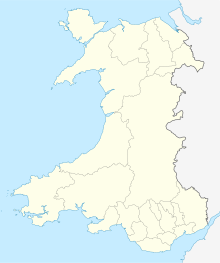Marloes Mere is a Site of Special Scientific Interest (or SSSI) in Pembrokeshire, South Wales. It has been designated as a Site of Special Scientific Interest since November 1985 in an attempt to protect its fragile biological elements.[1] The site has an area of 17.17 hectares (42.4 acres) and is managed by Natural Resources Wales.
| Site of Special Scientific Interest | |
| Location | Pembrokeshire |
|---|---|
| Grid reference | SM7751308213 |
| Coordinates | 51°43′41″N 5°13′23″W / 51.728°N 5.223°W |
| Interest | Biological |
| Area | 17.17 hectares (42.4 acres) |
| Notification | 1985 |
Type
editThis site is notable for its wet acidic vegetation. It lies in a hollow on the Marloes peninsula lined with glacial silt and clay and each winter the pasture floods. Such pasture is rare in West Wales. Scarce plants occur and the shallow winter waters and ponds are frequented by waterfowl. The mere was common land until 1811; at that time Richard Fenton mentioned that it abounded in medicinal leeches (Hirudo medicinalis), from which the villagers derived a considerable trade.[citation needed]
Rare species
editRare plants include:
- three-lobed crowfoot (Ranunculus tripartitus)
- tubular water-dropwort (Oenanthe fistulosa) growing on the margins of the ditches, reservoirs and pools
- wintering wildfowl include wigeon, shoveler, pintail, teal and mallard
- the great green bush-cricket (Tettigonia viridissima), and the marsh fritillary butterfly (Euphydryas aurinia)
- six dragonflies including the emperor dragonfly (Anax imperator).
See also
editReferences
edit- ^ Countryside Council for Wales website (Natural Resources Wales since 2013); Archived 2014-01-01 at the Wayback Machine accessdate: 30 December 2013
External links
edit
